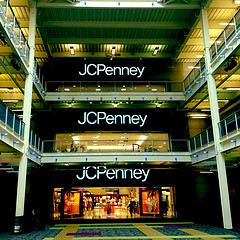JCPenney To Require Structural Inspections Of Factories In Bangladesh

(ktorster)
Neither retailer has signed on to the legally binding Accord on Fire and Building Safety in Bangladesh, which has been agreed to by numerous European companies and PVH Corp., the American parent company of brands like Calvin Klein and Tommy Hilfiger. Abercrombie & Fitch said yesterday it intends on signing the accord, making it the only U.S. retailer to join thus far.
Instead, JCP will go it alone with the goal of making its inspections more rigorous with the inclusion of checks for structural concerns. Previous inspections had focused mainly on fire safety.
“We’re going to require structural and engineering inspections in countries that have that kind of risk,” a JCP exec tells the Wall Street Journal.
Though many retailers claim to have bolstered their factory reviews in recent years, most of these inspections have been done by auditors employed or hired by the retailer, and the results are rarely made transparent.
Walmart’s recently announced plan calls for increased transparency, but the company will not be paying for repairs or required upgrades it finds. Instead, it plans to use its leverage as the nation’s largest retailer, telling owners of these factories to improve conditions or lose Walmart as a customer. It also says it expects that these updates will result in Walmart having to pay more for the goods manufactured in Bangladesh.
Meanwhile, the National Retail Federation says it is working with five American and Canadian trade groups, repping both sellers and makers of apparel, to form its own pact regarding factory safety and working conditions in Bangladesh.
While increased and improved inspections can only make things better, some critics maintain that a unified approach to inspections and reporting transparency is the ideal way to go.
Want more consumer news? Visit our parent organization, Consumer Reports, for the latest on scams, recalls, and other consumer issues.

